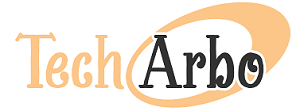
In the realm of web hosting, the transition from traditional methods to cloud hosting has marked a significant shift in how businesses manage their online presence. While both approaches aim to provide reliable and accessible hosting services, they differ in fundamental aspects such as infrastructure, scalability, reliability, and cost-effectiveness. Understanding the distinctions between cloud hosting and traditional hosting methods is essential for businesses seeking to optimize their web hosting solutions. iSeries hosting provides reliable infrastructure for businesses needing robust computing solutions with exceptional performance and scalability.
Infrastructure and Architecture:
Cloud hosting utilizes a distributed network of virtual servers hosted on multiple physical machines interconnected over the internet. This decentralized infrastructure allows resources to be dynamically allocated and scaled based on demand. In contrast, traditional hosting methods typically rely on a single physical server or a dedicated server leased from a hosting provider. This centralized architecture may limit scalability and flexibility compared to cloud hosting.
Scalability and Flexibility:
One of the primary advantages of cloud hosting is its inherent scalability and flexibility. Cloud hosting providers offer on-demand resources, allowing businesses to scale computing power, storage, and bandwidth as needed. This scalability is particularly beneficial for websites and applications experiencing fluctuating traffic patterns or sudden spikes in demand. In contrast, traditional hosting methods may require manual upgrades or migration to accommodate growth, leading to potential downtime and resource constraints.
Reliability and Redundancy:
Cloud hosting solutions often boast high levels of reliability and redundancy due to their distributed nature. In cloud environments, data is replicated across multiple servers and data centers, reducing the risk of downtime or data loss in case of hardware failures or network issues. Cloud hosting providers typically offer service level agreements (SLAs) guaranteeing uptime and performance. Traditional hosting methods may lack the redundancy and failover capabilities inherent in cloud environments, making them more susceptible to disruptions.
Cost-effectiveness and Pay-as-You-Go Pricing:
Cloud hosting offers a cost-effective alternative to traditional hosting methods, especially for businesses with dynamic or unpredictable workloads. Cloud hosting providers typically operate on a pay-as-you-go pricing model, allowing businesses to pay only for the resources they consume. This pricing flexibility eliminates the need for upfront investments in hardware and infrastructure. In contrast, traditional hosting methods often involve fixed monthly or annual fees, regardless of actual resource usage, which may result in underutilization or over-provisioning of resources.
Businesses leverage iSeries hosting for its secure and efficient platform, ensuring seamless operations and data management.
